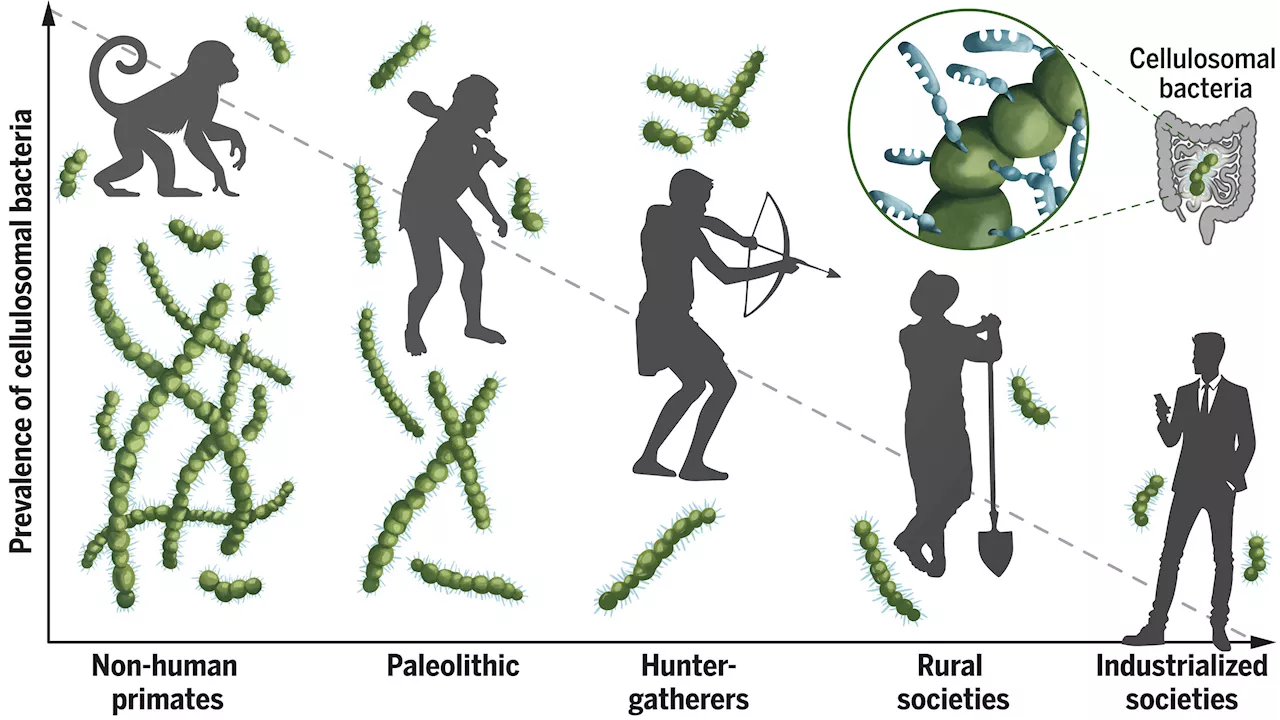Anuradha Varanasi is a freelance science writer. She writes on the intersection of health/medicine, racial disparities, and climate change. She earned an MA in Science Journalism from Columbia University in New York City.
beds by the photographer, lies in a baby bed in the maternity ward of a hospital on August 12, 2011 in a city in the east German state of Brandenburg, Germany. According to data released by Eurostat last week Germany, with 8.3 births per 1,000 people, has the lowest birth rate in all of Europe. Eastern Germany, which not only suffers from a low birth rate, also has a declining population due to young people moving away because of high unemployment in the region.
“So far, almost all studies of gut neurotransmitters were conducted in adult animals or human subjects, where a specific gut cell type called enterochromaffin cells produce neurotransmitters,” explained Dr. Zeng. “However, we discovered that this isn’t the case in the newborn gut where most of the serotonin is made by bacteria that are more abundant in the neonatal gut.
“We found that gut bacteria in young mice not only directly produce serotonin but also decrease an enzyme called monoamine oxidase that normally breaks down serotonin, thus keeping gut serotonin levels high,” lead author, Katherine Sanidad, a postdoctoral associate in pediatrics at Weill Cornell Medicine, said in a press release.
The researchers emphasized the importance of infants having good bacteria in their gut right after birth. Particularly in developed countries, babies have far less exposure to diverse microbes due to living in cleaner environments than babies born in developing countries. Also, unhealthy diets full of ultra-processed foods could significantly deplete the presence of serotonin-producing bacteria in the neonatal gut.
United States Latest News, United States Headlines
Similar News:You can also read news stories similar to this one that we have collected from other news sources.
 Blindness from some inherited eye diseases may be caused by gut bacteriaSight loss in certain inherited eye diseases may be caused by gut bacteria, and is potentially treatable by antimicrobials, finds a new study in mice.
Blindness from some inherited eye diseases may be caused by gut bacteriaSight loss in certain inherited eye diseases may be caused by gut bacteria, and is potentially treatable by antimicrobials, finds a new study in mice.
Read more »
 Surprising Link Found Between Gut Bacteria And Vision LossThe Best in Science News and Amazing Breakthroughs
Surprising Link Found Between Gut Bacteria And Vision LossThe Best in Science News and Amazing Breakthroughs
Read more »
 Tryptophan in diet, gut bacteria protect against E. coli infectionGut bacteria and a diet rich in the amino acid tryptophan can play a protective role against pathogenic E. coli, which can cause severe stomach upset, cramps, fever, intestinal bleeding and renal failure.
Tryptophan in diet, gut bacteria protect against E. coli infectionGut bacteria and a diet rich in the amino acid tryptophan can play a protective role against pathogenic E. coli, which can cause severe stomach upset, cramps, fever, intestinal bleeding and renal failure.
Read more »
 Gut bacteria make neurotransmitters to shape the newborn immune systemInvestigators discovered that unique bacteria colonize the gut shortly after birth and make the neurotransmitter serotonin to educate gut immune cells. This prevents allergic reactions to food and the bacteria themselves during early development.
Gut bacteria make neurotransmitters to shape the newborn immune systemInvestigators discovered that unique bacteria colonize the gut shortly after birth and make the neurotransmitter serotonin to educate gut immune cells. This prevents allergic reactions to food and the bacteria themselves during early development.
Read more »
 Research team identifies three bacteria species in the human gut that can break down celluloseAn international team of biotechnologists and evolutionary specialists has discovered three types of bacteria in the human gut that help to break down cellulose. In their project, reported in the journal Science, the group studied the genomes of bacteria found in human and ruminates.
Research team identifies three bacteria species in the human gut that can break down celluloseAn international team of biotechnologists and evolutionary specialists has discovered three types of bacteria in the human gut that help to break down cellulose. In their project, reported in the journal Science, the group studied the genomes of bacteria found in human and ruminates.
Read more »
 Gut bacteria important for overcoming milk allergyResearchers have discovered a link between gut bacteria and the success of milk-allergy oral immunotherapy. The study found that Bifidobacterium -- a genus of beneficial bacteria in the gut -- was associated with a higher chance of successful treatment.
Gut bacteria important for overcoming milk allergyResearchers have discovered a link between gut bacteria and the success of milk-allergy oral immunotherapy. The study found that Bifidobacterium -- a genus of beneficial bacteria in the gut -- was associated with a higher chance of successful treatment.
Read more »
